-
 Bitcoin
Bitcoin $84,258.9872
0.35% -
 Ethereum
Ethereum $1,590.5943
1.14% -
 Tether USDt
Tether USDt $0.9998
-0.02% -
 XRP
XRP $2.0990
1.26% -
 BNB
BNB $587.2456
1.30% -
 Solana
Solana $132.5296
6.11% -
 USDC
USDC $0.9999
0.00% -
 TRON
TRON $0.2483
-2.37% -
 Dogecoin
Dogecoin $0.1557
1.96% -
 Cardano
Cardano $0.6199
2.68% -
 UNUS SED LEO
UNUS SED LEO $9.1185
-2.93% -
 Chainlink
Chainlink $12.4572
2.80% -
 Avalanche
Avalanche $19.2046
1.97% -
 Toncoin
Toncoin $2.9568
3.52% -
 Stellar
Stellar $0.2397
2.14% -
 Shiba Inu
Shiba Inu $0.0...01181
1.81% -
 Sui
Sui $2.0961
0.90% -
 Hedera
Hedera $0.1602
2.15% -
 Bitcoin Cash
Bitcoin Cash $330.4313
4.06% -
 Polkadot
Polkadot $3.6278
3.32% -
 Litecoin
Litecoin $74.9638
1.65% -
 Hyperliquid
Hyperliquid $16.4916
8.27% -
 Dai
Dai $0.9999
-0.01% -
 Bitget Token
Bitget Token $4.3499
0.87% -
 Ethena USDe
Ethena USDe $0.9990
-0.03% -
 Pi
Pi $0.6068
-1.04% -
 Monero
Monero $216.4766
0.12% -
 Uniswap
Uniswap $5.1795
0.94% -
 Pepe
Pepe $0.0...07203
1.55% -
 OKB
OKB $50.4898
-2.39%
How do NFT Domain Names achieve decentralized websites?
NFT domain names, leveraging blockchain and IPFS, offer decentralized website hosting, providing censorship resistance and enhanced security by separating domain name from content stored on a distributed network, accessed via resolution services.
Mar 02, 2025 at 03:07 am
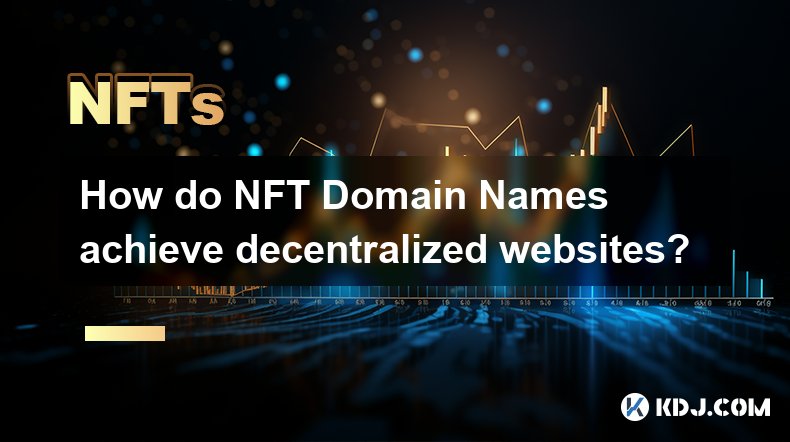
Key Points:
- NFT domain names leverage blockchain technology for decentralized website hosting.
- They utilize IPFS or similar decentralized storage networks to store website content.
- Resolution services map NFT domain names to decentralized websites.
- This approach offers censorship resistance and enhanced security compared to traditional domain names.
- Several platforms facilitate the creation and management of NFT domain names.
How do NFT Domain Names Achieve Decentralized Websites?
The rise of decentralized technologies has brought forth innovative solutions to traditional web infrastructure. One such innovation is the use of NFT domain names to host decentralized websites. Unlike traditional domain names managed by centralized registries like Verisign, NFT domain names are registered and managed on a blockchain, offering a new level of control and security.
The core principle lies in the separation of the domain name itself (the identifier) from the website's content. The NFT domain name, acting as a unique identifier, points to the location of the website's content. This content isn't stored on a centralized server but rather on a decentralized storage network, most commonly IPFS (InterPlanetary File System).
IPFS is a peer-to-peer distributed file system that stores data across a network of nodes. This means that the website's content isn't vulnerable to single points of failure or censorship by a single entity. If one node goes down, the content remains accessible through other nodes in the network. This inherent redundancy is a major advantage of decentralized website hosting.
To access a website hosted on an NFT domain name, a resolution service is necessary. These services act as bridges between the human-readable NFT domain name and the decentralized storage location of the website's content. The resolution service takes the NFT domain name as input and, after verifying its ownership on the blockchain, retrieves the website's location (typically an IPFS hash) and directs the user to the correct content.
The process of creating and using an NFT domain name involves several steps:
- Acquire an NFT domain name: Purchase an available domain name on a marketplace or platform that offers NFT domains.
- Store website content on IPFS: Upload the website's files (HTML, CSS, JavaScript, images, etc.) to an IPFS node. This will generate a unique content identifier (CID).
- Point the NFT domain name to the IPFS content: Configure the NFT domain name to point to the CID obtained from IPFS. This is usually done through the platform where you acquired the domain name.
- Use a decentralized resolution service: The resolution service will link the NFT domain name to the IPFS CID, allowing users to access the website.
The security implications are significant. Because the domain name is registered on a blockchain, ownership is verifiable and tamper-proof. This significantly reduces the risk of domain hijacking or DNS manipulation, common vulnerabilities in the traditional web infrastructure. Furthermore, the decentralized nature of the hosting ensures censorship resistance. No single entity can take down the website, making it ideal for projects that require a high degree of freedom and autonomy.
Several platforms currently support the creation and management of NFT domain names. Each platform may have its own specific processes and fees, so research is crucial before choosing a provider. The choice of platform depends on factors such as supported blockchains, pricing models, and available features.
Common Questions and Answers:
Q: What are the benefits of using NFT domain names for decentralized websites?
A: The main benefits include censorship resistance, increased security (due to blockchain-based ownership verification), and enhanced control over your website. You avoid reliance on centralized domain registrars and hosting providers.
Q: Is it more expensive to host a website using an NFT domain name?
A: The costs involved vary. While the initial purchase of the NFT domain name might be higher than a traditional domain, the long-term costs could be comparable or even lower, depending on hosting and maintenance expenses.
Q: Are NFT domain names easy to use?
A: The technical aspects might initially seem complex, especially for users unfamiliar with blockchain technology and decentralized storage. However, user-friendly platforms are emerging, simplifying the process.
Q: What are the limitations of using NFT domain names?
A: The decentralized nature can present challenges in terms of discoverability. SEO and marketing strategies need to adapt to this decentralized environment. Also, the adoption rate of NFT domains is still relatively low compared to traditional domains.
Q: What are some examples of platforms offering NFT domain names?
A: Several platforms exist, and the specific names vary. It's best to research current market offerings as this is a rapidly evolving field. These platforms usually handle the technical complexities of connecting the NFT domain to the decentralized storage.
Q: How does the resolution of an NFT domain name differ from a traditional domain name?
A: A traditional domain name relies on a centralized DNS system. An NFT domain name utilizes a decentralized resolution service that interacts with the blockchain to verify ownership and retrieve the website's location from a decentralized storage network like IPFS. This removes the single point of failure inherent in the traditional DNS system.
Q: What happens if the IPFS node hosting my website's content goes offline?
A: IPFS is designed for redundancy. While a single node might go offline, the data remains available through other nodes in the network. The website should remain accessible unless a significant portion of the network experiences outages.
Q: Can I use my existing website with an NFT domain name?
A: You would need to migrate your website's content to a decentralized storage solution like IPFS and then configure your NFT domain name to point to the new location of your website files. This is a technical process that may require some expertise.
Disclaimer:info@kdj.com
The information provided is not trading advice. kdj.com does not assume any responsibility for any investments made based on the information provided in this article. Cryptocurrencies are highly volatile and it is highly recommended that you invest with caution after thorough research!
If you believe that the content used on this website infringes your copyright, please contact us immediately (info@kdj.com) and we will delete it promptly.
- Kaspa (KAS) Price Prediction Hints at Accumulation Before Potential Surge
- 2025-04-17 22:15:13
- FET Price Prediction: Artificial Superintelligence Alliance (FET) Cryptocurrency Rebounds 10%
- 2025-04-17 22:15:13
- U.S. President Donald Trump Slammed Fed Chair Jerome Powell
- 2025-04-17 22:15:12
- Running a laundromat can't be as "easy" as potential investors may believe it is
- 2025-04-17 22:15:12
- BlockDAG (BDAG) Presale Explosion and Mobile Mining Powerhouse
- 2025-04-17 22:05:12
- Solana (SOL) Price Prediction: Eyes on $180 as Structure Turns Bullish
- 2025-04-17 22:05:12
Related knowledge
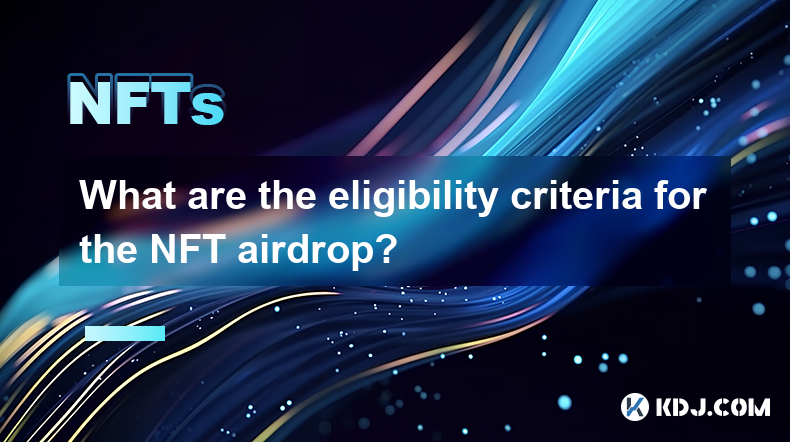
What are the eligibility criteria for the NFT airdrop?
Apr 17,2025 at 04:56pm
Understanding NFT AirdropsNFT airdrops are a popular method used by blockchain projects to distribute non-fungible tokens (NFTs) to their community members. These airdrops can serve various purposes, such as rewarding loyal users, promoting new projects, or increasing the visibility of existing ones. To participate in an NFT airdrop, individuals must me...

How to combine traditional artworks with NFTs?
Apr 17,2025 at 12:35am
The integration of traditional artworks with Non-Fungible Tokens (NFTs) represents a fascinating intersection of art and technology, offering artists and collectors new ways to engage with and monetize art. This article will explore how traditional artworks can be combined with NFTs, providing a detailed guide on the process, benefits, and consideration...
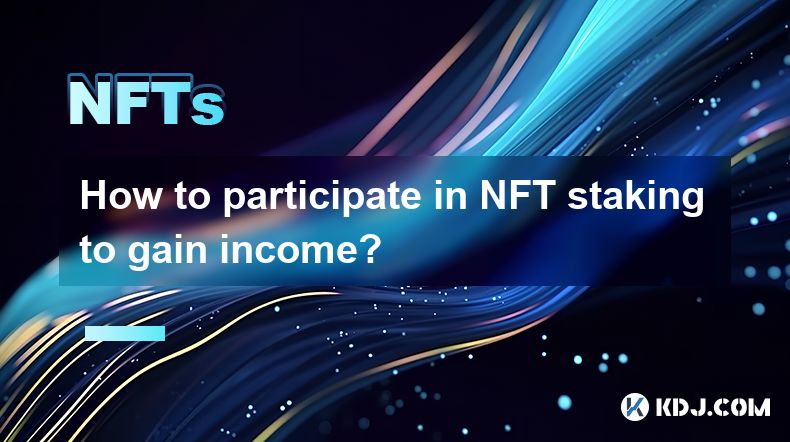
How to participate in NFT staking to gain income?
Apr 17,2025 at 06:14pm
Participating in NFT staking to generate income has become an increasingly popular method within the cryptocurrency community. NFT staking involves locking up your Non-Fungible Tokens in a smart contract to earn rewards, typically in the form of additional tokens or other benefits. This guide will walk you through the process of participating in NFT sta...
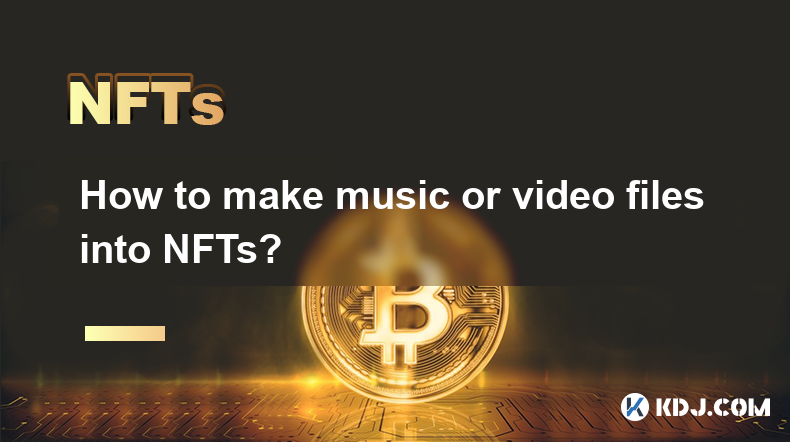
How to make music or video files into NFTs?
Apr 16,2025 at 10:29pm
Creating music or video files into Non-Fungible Tokens (NFTs) has become an increasingly popular way for artists and creators to monetize their work directly. This process involves converting your digital content into a unique token on a blockchain, which can then be bought, sold, or traded. Here’s a detailed guide on how to transform your music or vide...
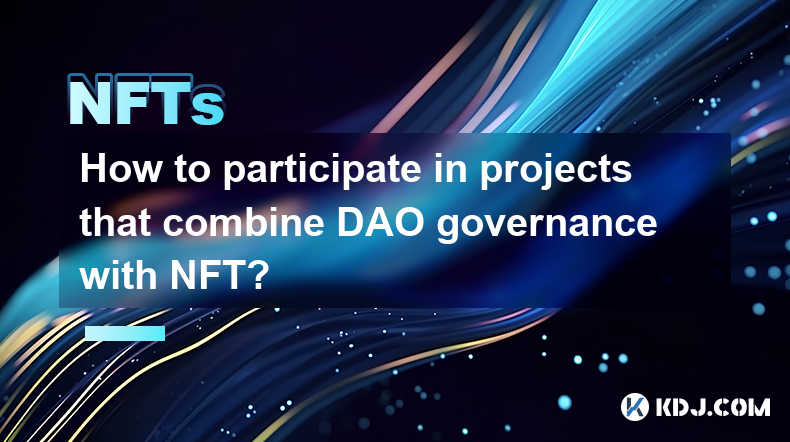
How to participate in projects that combine DAO governance with NFT?
Apr 17,2025 at 10:14am
Participating in projects that combine DAO governance with NFTs offers a unique opportunity to engage with decentralized communities and digital assets. These projects often involve voting on project decisions and owning unique digital tokens that can represent membership, access, or other benefits. Here's a detailed guide on how to participate in such ...
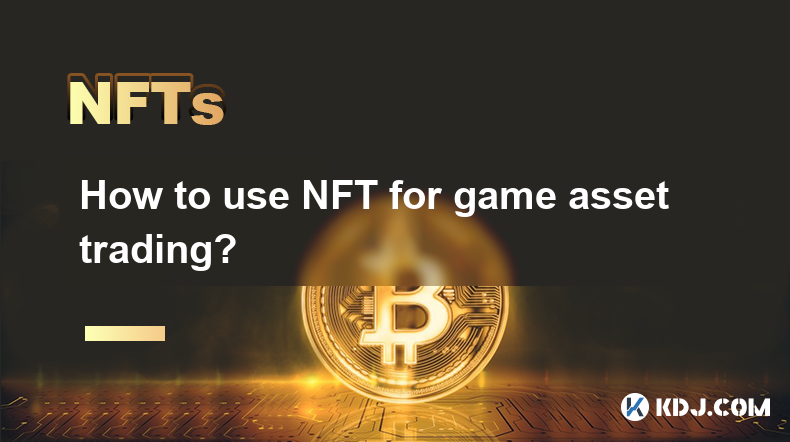
How to use NFT for game asset trading?
Apr 17,2025 at 12:21pm
Using Non-Fungible Tokens (NFTs) for game asset trading has become an increasingly popular method for gamers and developers alike to buy, sell, and trade unique in-game items. NFTs provide a way to prove ownership and authenticity of digital assets, making them perfect for trading game items that have unique characteristics and value. In this article, w...

What are the eligibility criteria for the NFT airdrop?
Apr 17,2025 at 04:56pm
Understanding NFT AirdropsNFT airdrops are a popular method used by blockchain projects to distribute non-fungible tokens (NFTs) to their community members. These airdrops can serve various purposes, such as rewarding loyal users, promoting new projects, or increasing the visibility of existing ones. To participate in an NFT airdrop, individuals must me...

How to combine traditional artworks with NFTs?
Apr 17,2025 at 12:35am
The integration of traditional artworks with Non-Fungible Tokens (NFTs) represents a fascinating intersection of art and technology, offering artists and collectors new ways to engage with and monetize art. This article will explore how traditional artworks can be combined with NFTs, providing a detailed guide on the process, benefits, and consideration...

How to participate in NFT staking to gain income?
Apr 17,2025 at 06:14pm
Participating in NFT staking to generate income has become an increasingly popular method within the cryptocurrency community. NFT staking involves locking up your Non-Fungible Tokens in a smart contract to earn rewards, typically in the form of additional tokens or other benefits. This guide will walk you through the process of participating in NFT sta...

How to make music or video files into NFTs?
Apr 16,2025 at 10:29pm
Creating music or video files into Non-Fungible Tokens (NFTs) has become an increasingly popular way for artists and creators to monetize their work directly. This process involves converting your digital content into a unique token on a blockchain, which can then be bought, sold, or traded. Here’s a detailed guide on how to transform your music or vide...

How to participate in projects that combine DAO governance with NFT?
Apr 17,2025 at 10:14am
Participating in projects that combine DAO governance with NFTs offers a unique opportunity to engage with decentralized communities and digital assets. These projects often involve voting on project decisions and owning unique digital tokens that can represent membership, access, or other benefits. Here's a detailed guide on how to participate in such ...

How to use NFT for game asset trading?
Apr 17,2025 at 12:21pm
Using Non-Fungible Tokens (NFTs) for game asset trading has become an increasingly popular method for gamers and developers alike to buy, sell, and trade unique in-game items. NFTs provide a way to prove ownership and authenticity of digital assets, making them perfect for trading game items that have unique characteristics and value. In this article, w...
See all articles























































































